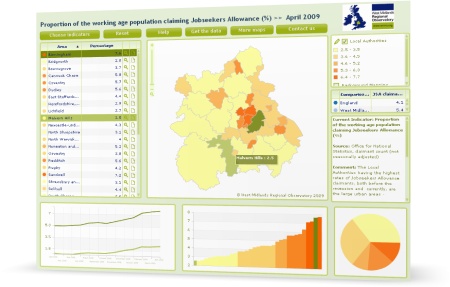Here’s a presentation I gave at an internal get-together with researchers at the Observatory last month.
My aim was to translate the core principles of the open data movement, and summarise the key policy developments over 2009–2010 into meaningful and immediately applicable things you can do now. I tried to tailor the presentation specifically to people working with data every day as part of their research work.
View on Scribd | OpenDocument Presentation (1.56mb) | PowerPoint (1.9mb)
Hat tips: Much of this presentation is adapted from Chris Taggart‘s presentation on opening up local government data and the data publishing three-step by Richard Wallis.
The presentation also relates to helping non-technical staff contribute to open data initiatives by making small changes to existing working habits – the first three of Ed Summers’ five stars of open linked data:
| ★ | make your stuff available on the web (whatever format) |
| ★★ | make it available as structured data (e.g. excel instead of image scan of a table) |
| ★★★ | non-proprietary format (e.g. csv instead of excel) |
| ★★★★ | use URLs to identify things, so that people can point at your stuff |
| ★★★★★ | link your data to other people’s data to provide context |
Filed under: Data, West Midlands Regional Observatory, wmro.org | Tagged: data presentation, data sharing, knowledge sharing, metadata, opendata, researchers | Leave a comment »




 Last Wednesday, I went to an event at Fazeley Studios in Birmingham to explore innovative, useful and important applications of data.
Last Wednesday, I went to an event at Fazeley Studios in Birmingham to explore innovative, useful and important applications of data. It’s just over 12 months since the re-launch of the Observatory’s website
It’s just over 12 months since the re-launch of the Observatory’s website 






